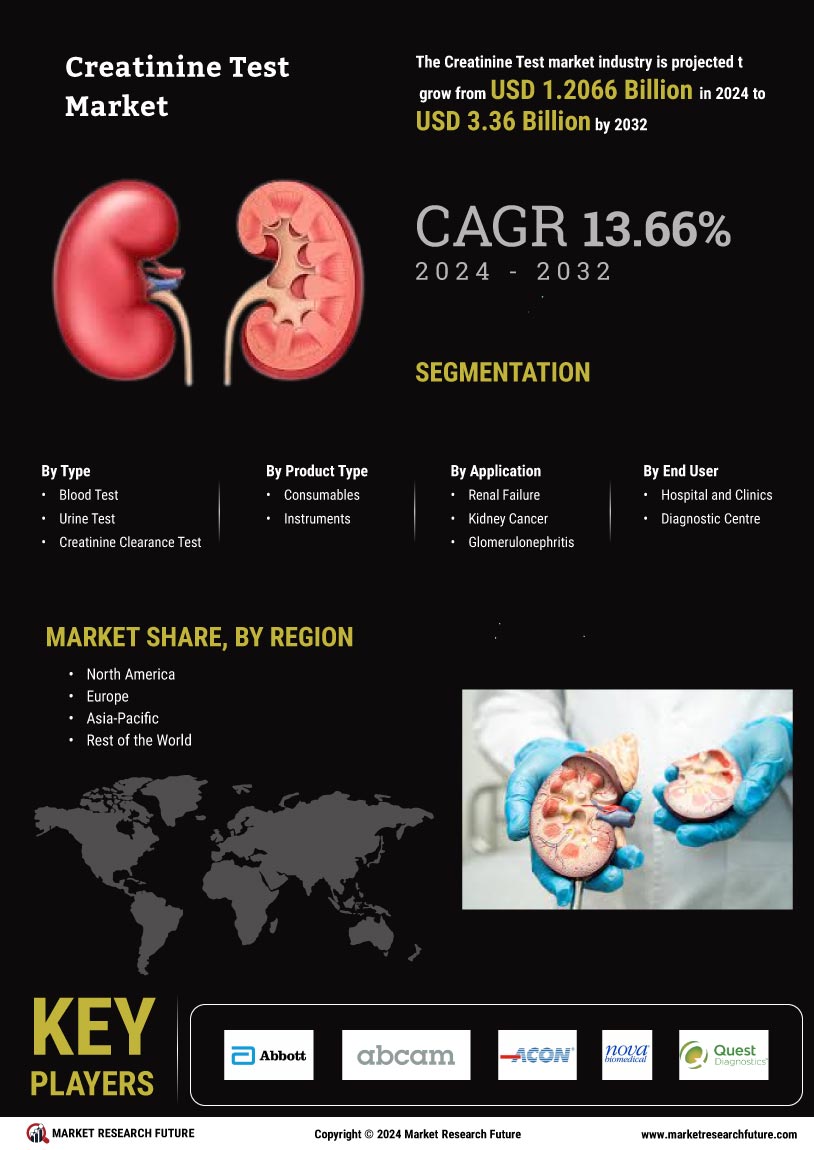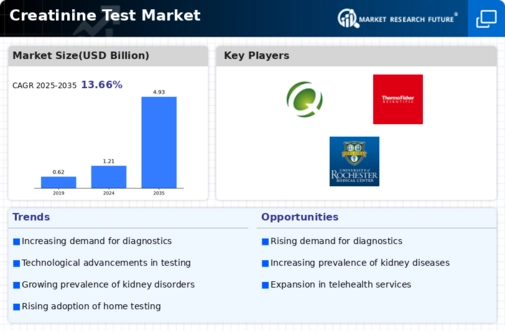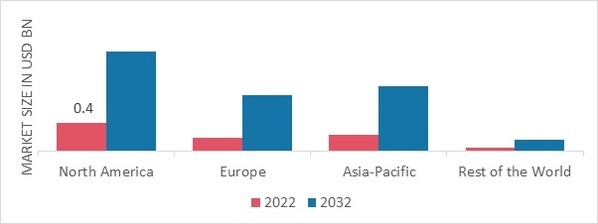Market Growth Projections
The Global Creatinine Test Market Industry is poised for substantial growth, with projections indicating a market size of 1.21 USD Billion in 2024 and an anticipated increase to 4.93 USD Billion by 2035. This growth trajectory suggests a compound annual growth rate (CAGR) of 13.66% from 2025 to 2035. Such figures reflect the rising demand for creatinine testing driven by various factors, including the increasing prevalence of kidney diseases, technological advancements, and heightened health awareness. The market's expansion is indicative of a broader trend towards preventive healthcare, where regular monitoring of kidney function is becoming a standard practice in medical care.
Growing Geriatric Population
The aging population is a significant driver of the Global Creatinine Test Market Industry. As individuals age, the risk of developing chronic kidney diseases increases, necessitating regular monitoring of kidney function. The demographic shift towards an older population is evident, with projections indicating that by 2035, a substantial portion of the global population will be over 65 years old. This trend is likely to result in a higher demand for creatinine tests, as healthcare providers prioritize kidney health in geriatric care. The market's growth is further supported by the increasing focus on age-related health issues, leading to more comprehensive healthcare strategies that include routine kidney function assessments.
Rising Prevalence of Kidney Diseases
The Global Creatinine Test Market Industry is experiencing growth due to the increasing prevalence of kidney diseases worldwide. According to health statistics, chronic kidney disease affects millions globally, leading to a heightened demand for diagnostic tests. In 2024, the market is projected to reach 1.21 USD Billion, driven by the need for early detection and management of renal disorders. This trend is likely to continue as awareness about kidney health increases, prompting healthcare providers to adopt routine creatinine testing. The focus on preventive healthcare further supports the growth of this market, as timely diagnosis can significantly improve patient outcomes.
Regulatory Support and Reimbursement Policies
The Global Creatinine Test Market Industry is positively influenced by supportive regulatory frameworks and favorable reimbursement policies. Governments and health authorities are recognizing the importance of kidney health and are implementing policies that facilitate access to diagnostic testing. Reimbursement for creatinine tests is becoming more standardized, encouraging healthcare providers to incorporate these tests into routine check-ups. This regulatory support is crucial for expanding the market, as it reduces financial barriers for patients and healthcare facilities. As a result, the market is expected to experience robust growth, with a projected CAGR of 13.66% from 2025 to 2035, reflecting the increasing recognition of the value of kidney function monitoring.
Technological Advancements in Diagnostic Tools
Technological innovations are playing a pivotal role in the expansion of the Global Creatinine Test Market Industry. The introduction of advanced diagnostic tools, such as point-of-care testing devices and automated laboratory analyzers, enhances the accuracy and efficiency of creatinine testing. These innovations not only streamline the testing process but also reduce turnaround times, making it easier for healthcare professionals to make informed decisions. As a result, the market is expected to grow significantly, with projections indicating a rise to 4.93 USD Billion by 2035. The integration of digital health technologies further supports this trend, allowing for better patient management and monitoring.
Increased Health Awareness and Screening Programs
The Global Creatinine Test Market Industry benefits from heightened health awareness and the implementation of widespread screening programs. Governments and health organizations are increasingly promoting kidney health initiatives, encouraging regular screening for at-risk populations. This proactive approach is likely to drive demand for creatinine tests, as early detection can lead to better management of kidney-related conditions. The market's growth is supported by the increasing number of health campaigns and educational programs aimed at informing the public about the importance of kidney function monitoring. Such initiatives are essential for fostering a culture of preventive healthcare, which is crucial for reducing the burden of kidney diseases.















Leave a Comment